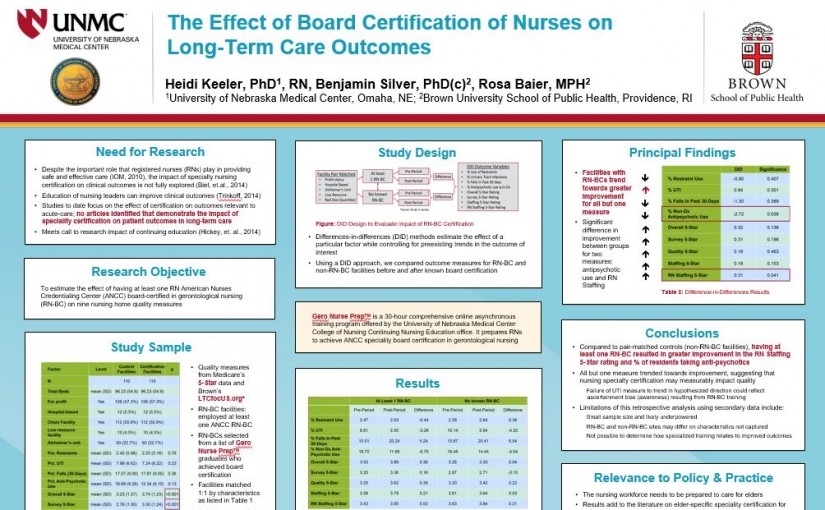UNMC’s Brittany Nordby BSN, RN, EMT, shares her thoughts on how to be ready for disasters.
You are walking down the hallway doing your routine checks and you start to smell natural gas. You are sitting at the nurses station charting and the power goes out. You are in a tornado warning and you need to move your patients. You answer the phone and get a bomb threat.
Do you know what to do? What does preparedness mean to you? Do you feel prepared if a disaster were to hit your workplace or the community you work in? Will you shelter-in-place or execute your facility’s evacuation plan?
Disasters come in all forms and can occur in an instant. Biological, chemical, radiological, and natural disaster emergencies are all types of emergencies that can occur in the environment around us. As nurses, we are the frontline providers to protect our patients in the event of a disaster. We must ask ourselves if we have the skills and knowledge to effectively care for our patients during these tragic events. Educating yourselves and your fellow nurses is the best way we can prepare for disasters that can occur in our workplaces and communities.
Planning, training, and exercising are all ways to assist in preparing for a disaster. We must become familiar with our workplace disaster plan. What do I do in the event of a fire, tornado, active shooter, flood, etc.? Pull out that binder and make yourself familiar with the procedures that should be followed. Recognize the vulnerable populations within your facility and the special considerations that may need to take place for those patients. Participation in mass causality drills that may take place in your community, workplace, or even statewide is an excellent way to practice the plan you have educated yourself on. Testing these plans allow us to see how well our original plan works and identifies any changes that need to be made. Finally, exercising allows for communication and community connections you will need when a real disaster occurs. Below you will find some helpful sites to visit.
http://app1.unmc.edu/nursing/heroes/index.cfm
It is never fun to think about a disaster occurring in your workplace or community. Regardless of this fact, we must prepare ourselves in the event tragedy does strike. Educate, plan, and utilize your resources to keep yourself and your patients safe and to provide the best care you can for your patients in the event of a disaster.
Brittany is the Project Coordinator for HEROES, which offers Emergency Preparedness training and education for healthcare providers and students across the state of Nebraska, and beyond. HEROES is an interdisciplinary approach to biological, chemical, radiological and natural disaster emergencies. Spearheaded by the UNMC College of Nursing, they collaborate with the College of Medicine, College of Allied Health Professions and the Center for Preparedness Education.







